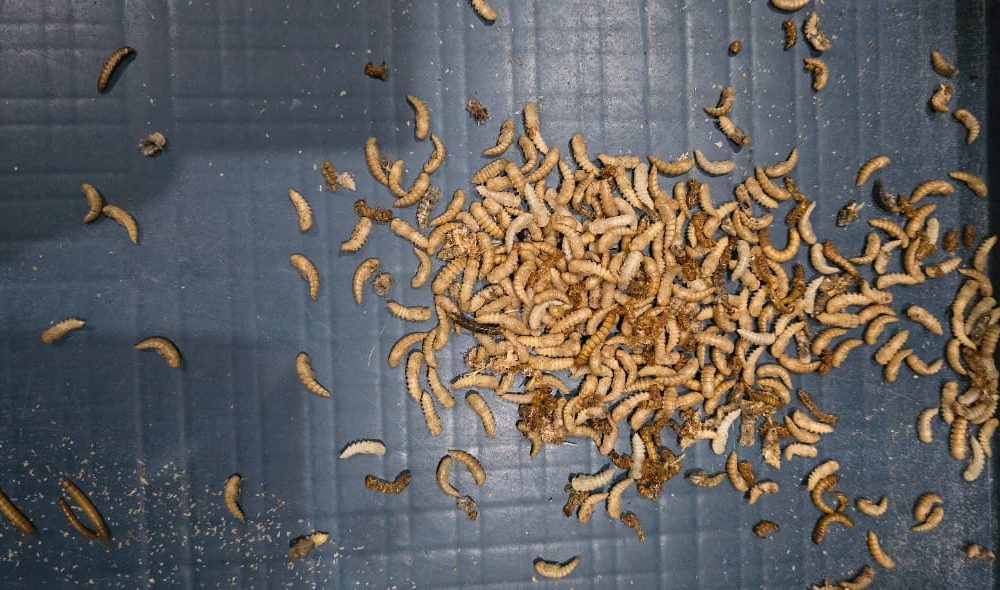Introduction:
Worm farming isn’t just a hobby – it can also be a profitable business! With increasing awareness about eco-friendly practices and organic farming, the demand for worm byproducts like worm castings, frass, and live worms has grown significantly. In Pakistan, this business model has immense potential, especially for farmers and low-income households. Mealworms, in particular, are highly sought after in the poultry industry as a protein-rich feed alternative. In this blog, we’ll guide you through the steps to turn your worm farm into a thriving business, focusing on how to scale and market your products effectively.
Key Sections:
- Market Research: Is There Demand for Worm Farming? – To succeed in the worm farming business, start by analyzing local demand and identifying your target market. In Pakistan, mealworms are popular as a high-protein feed for poultry farms, as they provide essential nutrients that enhance bird health and growth rates. The organic farming and gardening sectors are also growing, with more farmers and gardeners seeking natural soil enhancers like worm castings and frass. Additionally, educational institutions and environmental organizations might be interested in buying live worms for composting and educational projects. Conduct surveys or connect with local farming cooperatives and poultry farmers to understand their requirements and to establish initial relationships.
- Business Setup and Legal Considerations – Establishing a worm farm business requires some foundational steps to ensure smooth operations. In Pakistan, setting up an agricultural or livestock-based venture might require specific licenses or registrations, depending on your production scale. Research local regulations regarding the sale of live insects and compost products, especially if you plan to sell in bulk to commercial entities. A clear business plan outlining your production targets, operational costs, marketing strategies, and potential revenue sources is crucial. This plan should include startup costs (e.g., purchasing initial worms, building worm beds, or acquiring containers for mealworms), legal fees, and any permits needed for selling organic fertilizers.
- Scaling Your Worm Farm – To meet commercial demand, you’ll need to scale up production by expanding worm or mealworm colonies and optimizing farming practices. For mealworms, set up a multi-bin or stacked tray system to separate life stages (eggs, larvae, pupae, and adults) efficiently and manage populations. For worm farming, consider composting beds that can handle high volumes of organic waste, like food scraps and manure, for efficient worm cast production. Implement climate control, especially if your farm is located in a region with extreme weather, to maintain an optimal environment for breeding and growth. The use of automated feeding and watering systems can also save time and labor as production grows.
- Selling Your Products – Successful worm farms often diversify their product range to appeal to various markets. You can sell:
- Mealworms to poultry farms as protein-rich feed, either live or dried.
- Worm castings to gardeners and farmers as an organic fertilizer that improves soil health and boosts crop yields.
- Live worms to hobbyists, organic gardeners, or educational institutions interested in vermiculture projects.
- Compost and frass as a natural soil amendment to enrich gardens and farms.
- Marketing – Set up a social media presence and list products on local online marketplaces. Many mealworm farms also benefit from establishing relationships with local nurseries, farming cooperatives, and agricultural supply stores that are open to selling eco-friendly products. Local farmers’ markets, fairs, and trade events offer excellent venues for promoting your products directly to consumers.
- Maximizing Profit Margins – To increase profitability, focus on cutting costs and optimizing production. Reduce feed expenses by using organic waste or low-cost materials like agricultural residues (e.g., wheat bran or rice husks for mealworms) and compostable household waste. Bulk selling to large farms or cooperatives can provide more consistent income and reduce marketing expenses. Additionally, composting byproducts like frass can be sold as a standalone fertilizer, maximizing your return on investment. Efficient farm management—such as implementing automated processes, minimizing waste, and closely monitoring worm health—helps to lower maintenance costs and boost yields.
Conclusion:
Starting a mealworm farming business in Pakistan can be a rewarding and profitable venture, especially for those targeting poultry farms and organic farming sectors. With the right strategy, focusing on sustainable practices, and marketing to high-demand areas, you can turn your passion for mealworms into a successful enterprise that supports local agriculture, promotes environmental sustainability, and provides supplemental income for low-income households.

